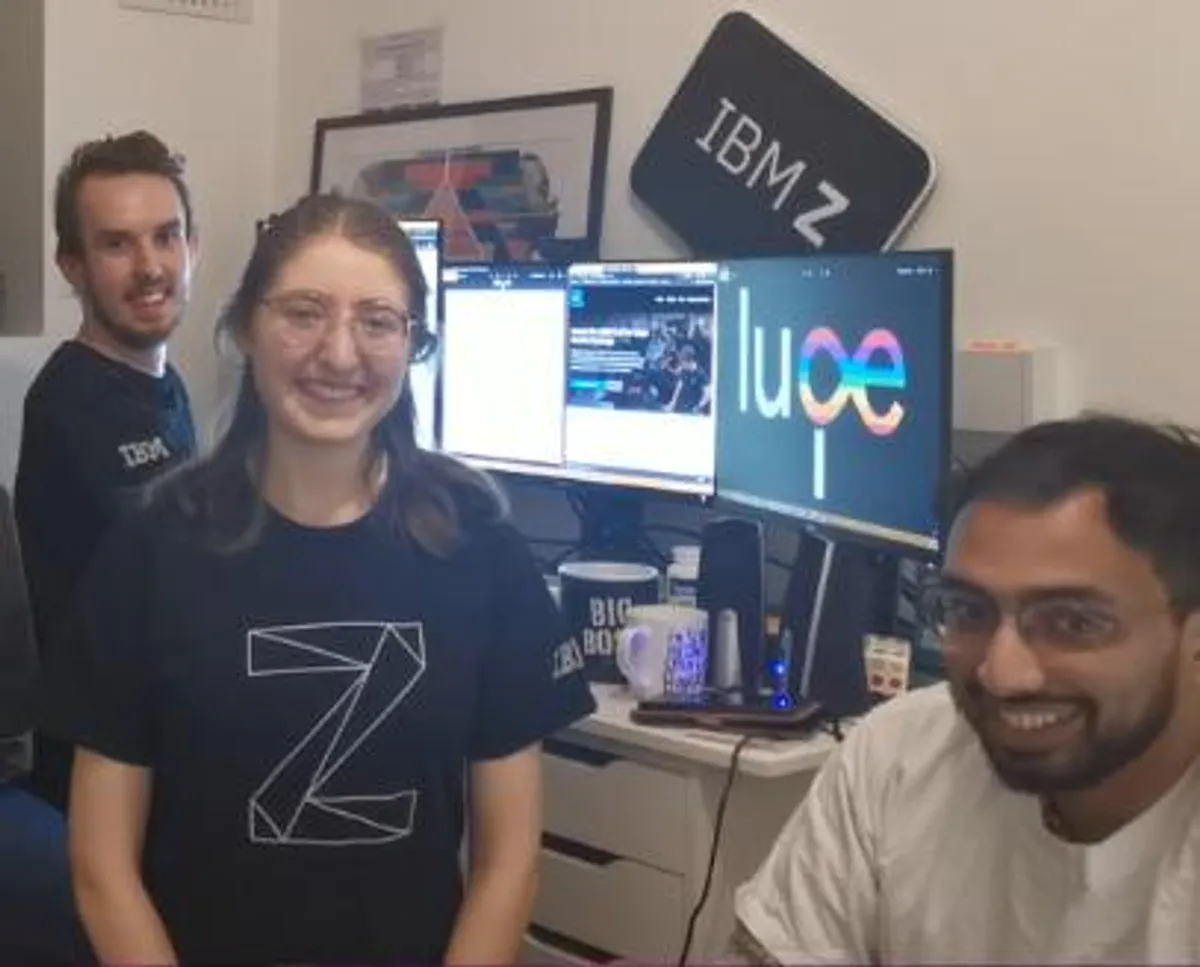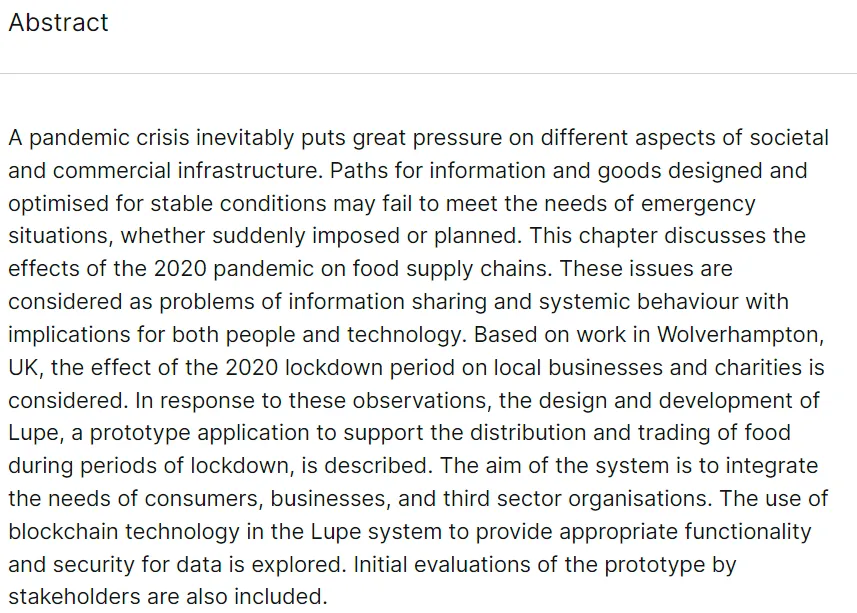
In 2020, I led a team of fellow students from the University of Wolverhampton in the IBM Call for Code hackathon. The theme was focused on the COVID-19 pandemic, and we developed “Lupe,” a blockchain application designed to help businesses, individuals, and charities manage and share resources like food and toiletries.
Our hard work and passion for the project paid off, and we were announced as global finalists, placing second out of 40,000 entrants.
Amazing to get a mention from @ChelseaClinton when a @wlv_uni student foodbank idea bagged 2nd place in the @CallforCode global competition - @EdeChloe, @iman_hussain & Lukas Jaks came 2nd to @UCBerkeley out of 53,000 students from over 45 countries: https://t.co/rIqAR4mDlf pic.twitter.com/eRhXvKW4Fw
— WLV Uni News (@wlv_uniNews) November 2, 2020
Building on the success of the competition, my colleagues and I co-authored a research paper titled “Ensuring Food Supply and Security During Localised Lockdowns: An Information and Technology-Based Approach.” This paper extended the concepts from our hackathon project, exploring how blockchain technology could be used to create more resilient and equitable food distribution systems.
